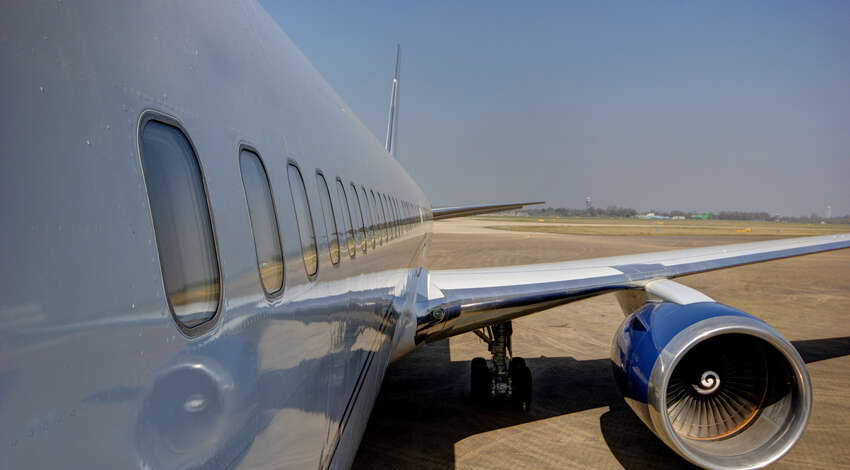Flying Greener: How Airlines Are Reducing Their Environmental Impact
At Road Scholar, we’re passionate about expanding our horizons and deepening our connection to each other and to the world through responsible exploration. We recognize, however, that every journey has an environmental impact. That’s why we’re continuously working to make our programs more sustainable, whether by choosing eco-conscious partners, offsetting carbon emissions or encouraging responsible travel practices. One area where sustainability is rapidly evolving is air travel. While flying has long been a major contributor to carbon emissions, many airlines are taking steps to reduce their environmental footprint. Here’s a closer look at some of the ways they’re making air travel greener.

Investing in Carbon Offsets and Carbon Removal Technology
To balance out emissions, many airlines are investing in carbon offset programs, supporting initiatives like reforestation, renewable energy and carbon capture projects. Some, like British Airways, are going even further by funding direct air capture technology, which removes carbon dioxide from the atmosphere.
While offsets are a positive step, they’re not a perfect solution. Some airlines contribute only small amounts while making big claims about their impact, known as “greenwashing.” That’s why it’s important for airlines to focus on cutting emissions at the source, not just compensating for them.
Reducing Fuel Consumption
Fuel use is the largest contributor to an airline’s carbon footprint. Many companies are tackling this by optimizing flight paths, using more efficient flight planning software and reducing engine idling on the ground. Even simple changes, like carrying lighter loads and streamlining boarding, can make a big difference in fuel efficiency.
Utilizing Sustainable Aviation Fuel (SAF)
Sustainable aviation fuel (SAF) has the potential to revolutionize air travel. Made from renewable sources like plant oils, agricultural waste and other organic materials, SAF can reduce carbon emissions by up to 80% compared to conventional jet fuel.
The challenge? Production hasn’t yet caught up with demand. Currently, less than 1% of jet fuel used today is SAF. More investment and government incentives are needed to scale up production and make SAF a viable alternative for widespread use.
Building More Fuel-Efficient Aircraft
Modern aircraft are being designed with lighter materials, improved aerodynamics and more efficient engines, all of which help reduce fuel consumption. Some airlines are also upgrading older planes with new technology to extend their lifespan and improve efficiency, rather than replacing entire fleets.

Eliminating Single-Use Plastics
From straws to plastic cutlery, airlines have historically relied on disposable plastics. Now, many are phasing them out in favor of biodegradable or reusable alternatives. These small changes add up, reducing waste and responding to a growing demand for more sustainable practices.
Reducing Waste: Recycling and Sustainable Alternatives
Beyond plastics, airlines are ramping up recycling efforts and finding creative ways to minimize waste. Some are switching to more durable, long-lasting materials for uniforms, while others are improving how onboard waste is sorted and recycled. These efforts contribute to the shift toward a circular economy, where materials are reused and repurposed instead of discarded.
A Greener Future for Air Travel
From fuel-efficient aircraft to waste reduction, airlines are taking steps toward a more sustainable future. Government regulations, such as the European Union’s emissions monitoring requirements, are also pushing the industry toward accountability and progress.
Some airlines are leading the charge with bold commitments. United Airlines launched a Sustainable Flight Fund to invest in startups working to decarbonize air travel, aiming for net-zero emissions by 2050 — all without relying on offsets. Delta has pledged over $1 billion to sustainability initiatives, focusing on research, design and testing for greener aviation technology.
How We Can Make a Difference
We also have a role to play. Choosing airlines that prioritize sustainability, supporting carbon reduction initiatives and making mindful travel decisions can help accelerate the shift toward greener skies. Change won’t happen overnight, but by working together, we can help build a future where exploring the world is both exciting and environmentally responsible.
